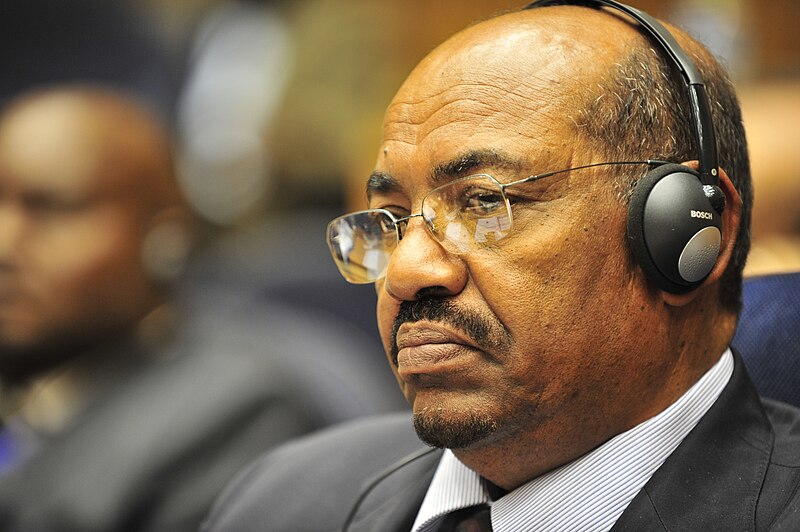 |
| a picture of Al-Bashir focusing on a meeting by Ahmed Tag, picture from http://upload.wikimedia.org |
Last September, al-Bashir announced the lifting of press censorship, ending a system under which newspapers were screened by censors every night to purge sensitive articles before publication. But newspapers were also informed of red lines that should not be crossed, including matters of national security and articles sensitive to public morality in the conservative Muslim-majority country. During the election period, Sudanese journalists covered the country's first multiparty polls in two decades without having their articles screened by intelligence services beforehand.
The trial of four of the newspaper's journalists, accused of spying and terrorism, began on Wednesday at the North Khartoum criminal court behind closed doors and amid a heavy police presence, an Agence France-Presse journalist said.
Intelligence services visited two evening papers last month to remove several articles deemed hostile before their publication, and last week state censors in Khartoum made the rounds of several opposition and independent papers, while pro-government newspapers were left alone. "This censorship brings fear among the media so the media end up [in] self-censorship," Annur added. "We have decided not to publish the paper this week," said Fayez al-Sillik, editor-in-chief of Ajras al-Hurriya, which is considered close to the ex-rebel Sudan People's Liberation Movement (SPLM) and was also targeted by state censors last week.
Sillik believes the new measures are here to stay. "It's a new policy... They want to control everything like at the beginning of Inqaz," the name given to the 1989 coup that brought al-Bashir to power, Sillik said.
Since the elections, "there has been a great setback on liberties and freedoms", said Yasser Arman, al-Bashir's main presidential rival in the April elections.
"There have been arrests of political leaders, medical doctors and journalists," Arman, an SPLM leader, said. On Tuesday, the United States voiced new criticism of Sudan for increased repression and a "deteriorating environment". State Department spokesperson Philip Crowley said a number of incidents in recent weeks have increased US concern, including the arrest of opposition leaders, censoring opposition newspapers and violence against their employees. Nine journalists working for south Sudan radio and television, detained for not having covered the inauguration of south Sudan leader Salva Kiir in May, were released on Monday.
Generally speaking Sudan's Media code of ethics is not practically seen in the ground. It is nothing but a mere wash on the screen. The government controls the media. The state-run newspapers, TV and radio are nothing but the mouthpiece of the government. The opposition political parties' dailies and publications are allowed to run and write but within the framework of the law, which is, by all means , is undemocratic and rather draconian, in a sense that the government newspaper writes article scathing the opposition parties and underestimate them, If it happens the other way round, the opposition party's daily might be in trouble. Editors and reporters of opposition parties' newspapers are often questioned about the articles they write in the event of criticizing the government policy or plans.
Other controversial issues regarding media coverage in the Sudan by foreign reporters and news agencies is that the government often bars them from travelling to hot spots in the country , say the troubled western region of Dar Fur. The government attitude is an evidence to lack of transparency and democracy. The press is gagged, and in fact there is no freedom of the press in the Sudan, to the very sense of the word.
There is confusion and misunderstanding by the government to the concept of what sovereignty and independence. The government of Sudan is in the belief that it can act without the world and international laws and norms predetermined by UN charter. They think acting as mavericks state means they are free and independent. Challenging the UN actions will lead to imposing sanctions against the country, and those in the helm of power will not be affected, and the victims are the poor citizens.
No comments:
Post a Comment